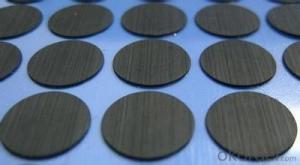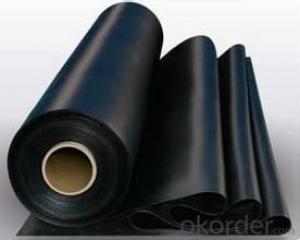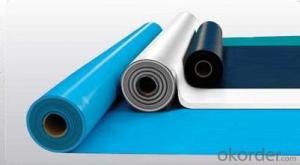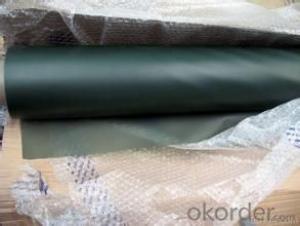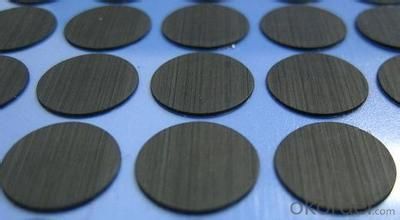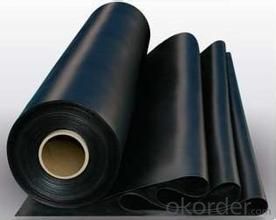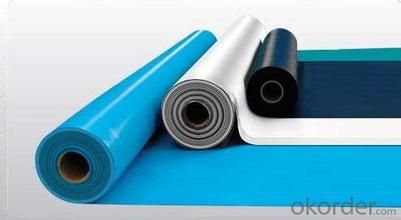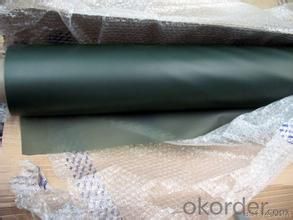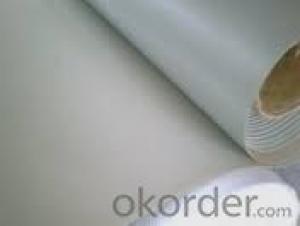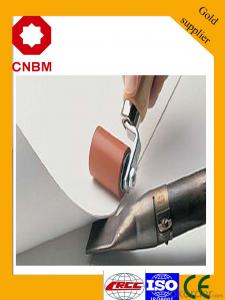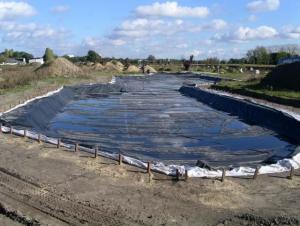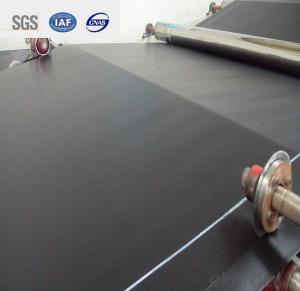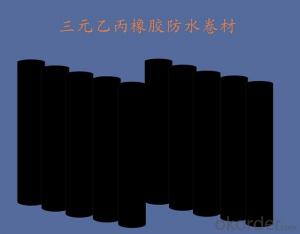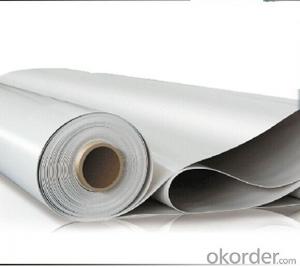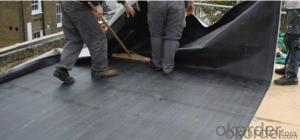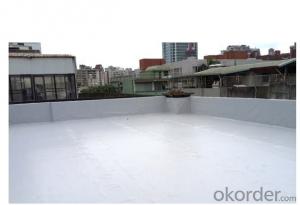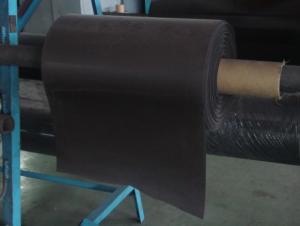EPDM Modified Waterproof Membrance for Roof and Pool
- Loading Port:
- Tianjin
- Payment Terms:
- TT or LC
- Min Order Qty:
- 5000 m²
- Supply Capability:
- 15000000 m²/month
OKorder Service Pledge
OKorder Financial Service
You Might Also Like
Quick Details
Type: | Waterproof Membrane | Place of Origin: | Shandong, China (Mainland) | Brand Name: | hongyuan |
Model Number: | Excaid-D | thickness:1.2mm,1.5mm,2.0mm: | Raw mateiral:EPDM rubber | width:1200mm: | Standard:GB18173.1--2006 |
length:20m: | Tear strength:>=25KN/m | break tensile strength >=7.5MPa: | waterproof:0.3MPa,30min | break elongation:>=450%: | usage:building waterproof |
Packaging & Delivery
Packaging Details: | PE membrane and pallet |
Delivery Detail: | within 20 days after receiving downpayment |
Specifications
1.ISO9001,ISO14001
2.Top 3 of Chinese waterproof materials manufacturer
3.Customize product property
4.System accessories
Technical Specification:
Type | Waterproof Membrane | |||
Material | EPDM RUBBER | |||
Thickness | 1.2mm; 1.5mm;2.0mm | |||
Weight(kg/m2) | 1.2mm | 1.5mm | 2.0mm | |
1.54-1.58 | 1.79-1.83 | 2.25-2.29 | ||
Length | 20m/Roll | |||
Width | 1.2m | |||
Usage | basements, ponds, Lake, steel structure roofing, underground, tunnels etc. | |||
Packing | 24 sqm/ROLL | |||
Loading in Container | ROLLS | |||
Colors | customized | |||
Enclosure | ||||
Technical Data:
Tensile Strength N/CM | Normal temperature: ≥60 ; 60°C: ≥30 |
Breaking Elongation % | Normal temperature:≥400 ; -20°C: ≥10 |
Tear Resistance N | ≥20 |
Impermeability, 30 min no leakage | 0.3Mpa |
Low Temperature Bending °C | ≥ -20 |
Heating Shrinking mm | Extension: ≥2 Shrink:≥4 |
Heat Resistance (80°C×168h) | Tensile Strength % : ≥80 ; Keeping rate of adhesive breaking:≥70 |
Alkali resistance (10% ca (oh)2 solution,normal temperature ×168h)) | Tensile Strength % : ≥80 ; Keeping rate of adhesive breaking:≥80 |
Synthetic aging | Tensile Strength % : ≥80 ; Keeping rate of adhesive breaking:≥80
|
FAQ
1. Could you offer free sample ?
Yes , free sample is available .
2.What's the MOQ ?
The MOQ is 5000 pcs .
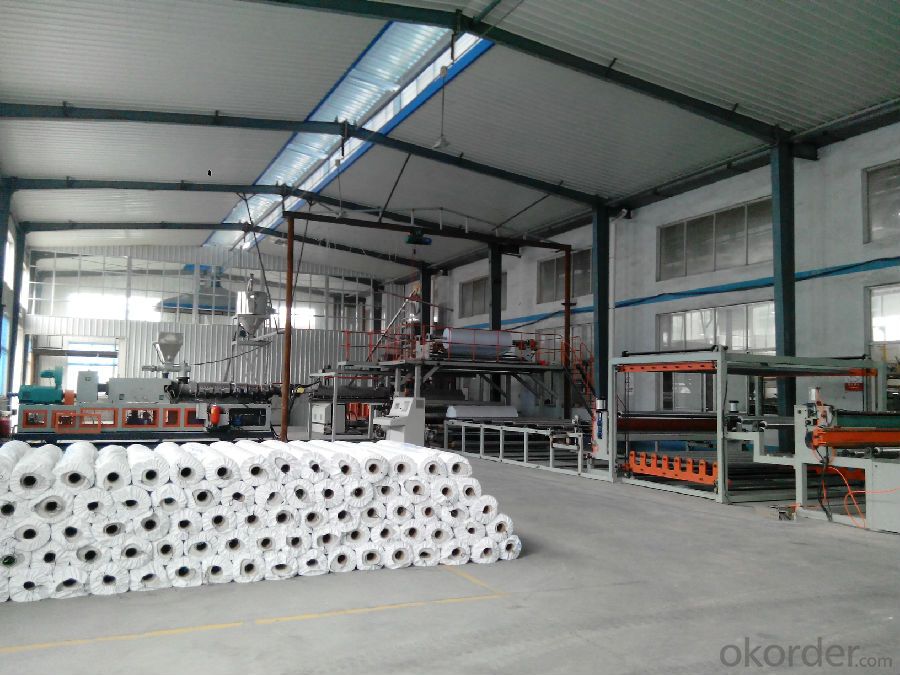
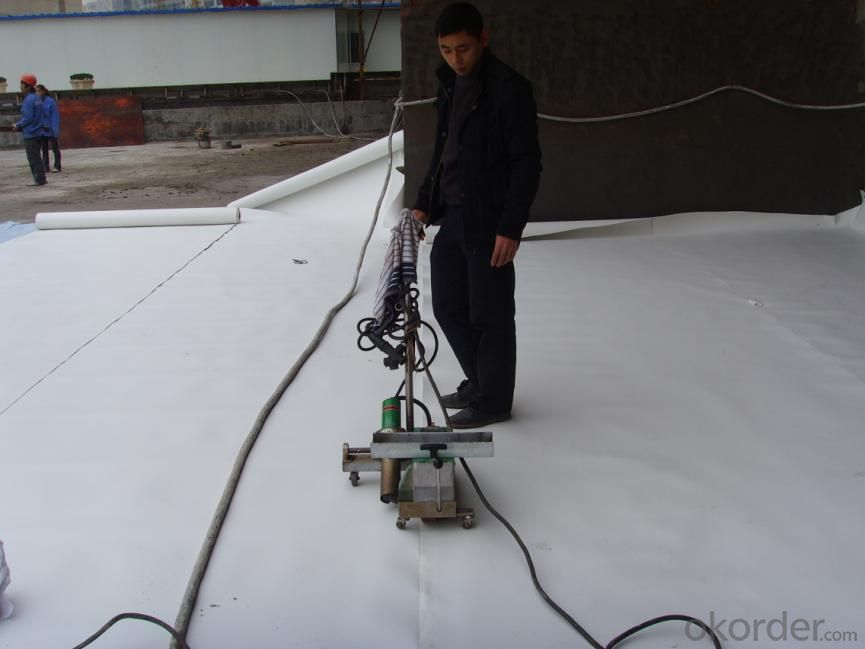
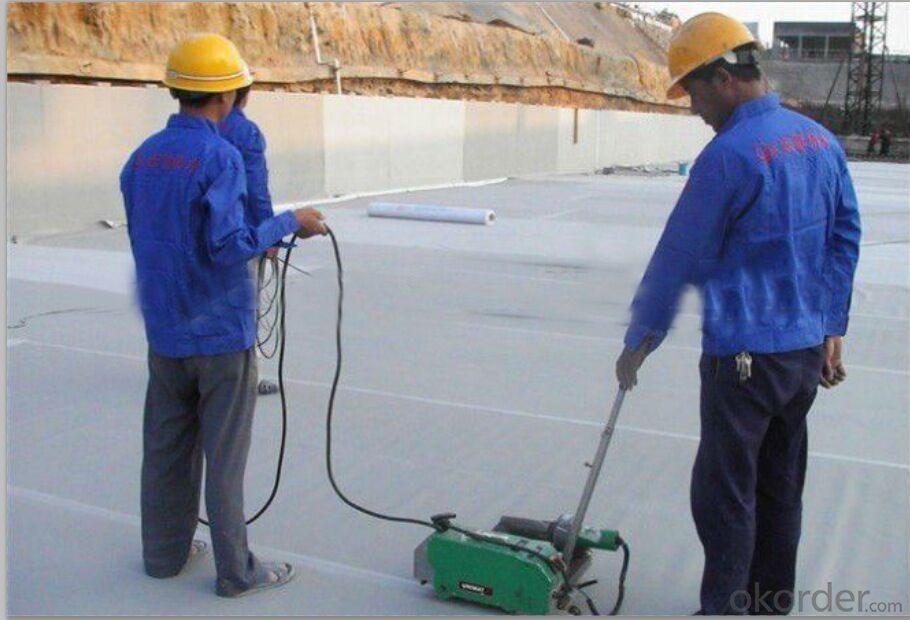
- Q: Waterproof building materials after the construction of drums, bubble is what reason?
- Causes and prevention of drums: Cause 1: If the membrane waterproof layer if the site is not solid, there is moisture, sunlight or artificial heat in the impact of the internal volume expansion, resulting in drums, the formation of the size of the bubble. Preventive measures: leveling layer should be kept flat, clean, dry, grass-roots treatment agent should be brushing evenly, which is to prevent the drum from the main measures. Raw materials in the transport and storage process, should pay attention to moisture and water. To avoid the rainy day, fog, big wind climate conditions under construction, to prevent grass-roots moisture. When the roof base should not be dry, and anxious to paving the membrane, the use of exhaust roof approach (exposed single layer of waterproofing membrane should not be used).
- Q: Can a waterproofing membrane be used on masonry surfaces?
- Yes, a waterproofing membrane can be used on masonry surfaces. It is a common practice to apply waterproofing membranes on masonry surfaces to prevent water penetration and protect the structure from moisture damage.
- Q: How does a waterproofing membrane handle water pressure from adjacent structures?
- A waterproofing membrane is designed to handle water pressure from adjacent structures by acting as a barrier that prevents water from seeping through. It resists the force exerted by the water pressure and ensures that no water can penetrate into the protected area.
- Q: Can a waterproofing membrane be used on concrete block walls?
- Concrete block walls are prone to water infiltration, which can cause problems like mold, mildew, and structural harm. To combat this, a waterproofing membrane can be utilized on the walls. This membrane acts as a protective shield, applied to the surface of the concrete blocks, effectively stopping water from seeping in. By creating a moisture-resistant barrier, it establishes a tight seal, preventing water from entering the interior of the walls. This aids in preserving the walls' integrity and safeguards against water-related damage. However, it is crucial to ensure that the waterproofing membrane is correctly installed and that any existing cracks or gaps in the concrete block walls are adequately sealed before its application.
- Q: How does a waterproofing membrane ensure a watertight seal around penetrations?
- A waterproofing membrane ensures a watertight seal around penetrations by providing a protective barrier that prevents water from seeping through gaps or openings. It is designed to adhere tightly to the surface, creating a seamless and impermeable layer that seals off any potential entry points for water. This membrane acts as a shield, effectively preventing moisture from penetrating the structure and causing damage or leakage.
- Q: Can a waterproofing membrane be used on precast aluminum surfaces?
- Yes, a waterproofing membrane can be used on precast aluminum surfaces. The membrane forms a protective layer that prevents water penetration, ensuring the durability and longevity of the precast aluminum surfaces.
- Q: Can a waterproofing membrane be used on concrete slabs or foundations?
- Yes, a waterproofing membrane can be used on concrete slabs or foundations. It serves as a protective barrier against water penetration, preventing moisture-related issues such as leaks, mold, and structural damage. The membrane is typically applied to the exterior surface of the concrete to create a waterproof seal.
- Q: Can a waterproofing membrane be used for industrial applications?
- Industrial applications can indeed utilize waterproofing membranes. These specialized membranes are designed specifically to create a barrier against water infiltration, and they can be employed in various industrial settings that require protection against water intrusion. Industries like construction, manufacturing, and transportation commonly employ these membranes to safeguard structures, equipment, and products from water damage. Furthermore, they can be applied to various surfaces such as roofs, walls, floors, and underground structures, providing durable waterproofing solutions that endure over time. The remarkable resilience of waterproofing membranes allows them to withstand even the harshest environmental conditions, chemicals, and high temperatures. This exceptional durability makes them particularly suitable for industrial applications that necessitate resistance to these elements. In summary, waterproofing membranes offer a dependable and efficient solution for industrial waterproofing requirements.
- Q: Can a waterproofing membrane be used on roofs?
- Yes, a waterproofing membrane can be used on roofs. Waterproofing membranes are commonly used on flat or low-slope roofs to provide an additional layer of protection against water infiltration. These membranes are typically made from synthetic materials such as modified bitumen, EPDM (ethylene propylene diene monomer), PVC (polyvinyl chloride), or TPO (thermoplastic olefin). They are designed to be durable, flexible, and resistant to UV rays, weathering, and ponding water. When properly installed, a waterproofing membrane can effectively prevent water from seeping into the underlying roof structure, protecting the building from leaks and water damage.
- Q: Can a waterproofing membrane be used in temporary or temporary structures?
- Yes, a waterproofing membrane can be used in temporary or temporary structures. It provides an effective barrier against moisture, protecting the structure from potential water damage during its temporary lifespan.
Send your message to us
EPDM Modified Waterproof Membrance for Roof and Pool
- Loading Port:
- Tianjin
- Payment Terms:
- TT or LC
- Min Order Qty:
- 5000 m²
- Supply Capability:
- 15000000 m²/month
OKorder Service Pledge
OKorder Financial Service
Similar products
Hot products
Hot Searches
Related keywords
